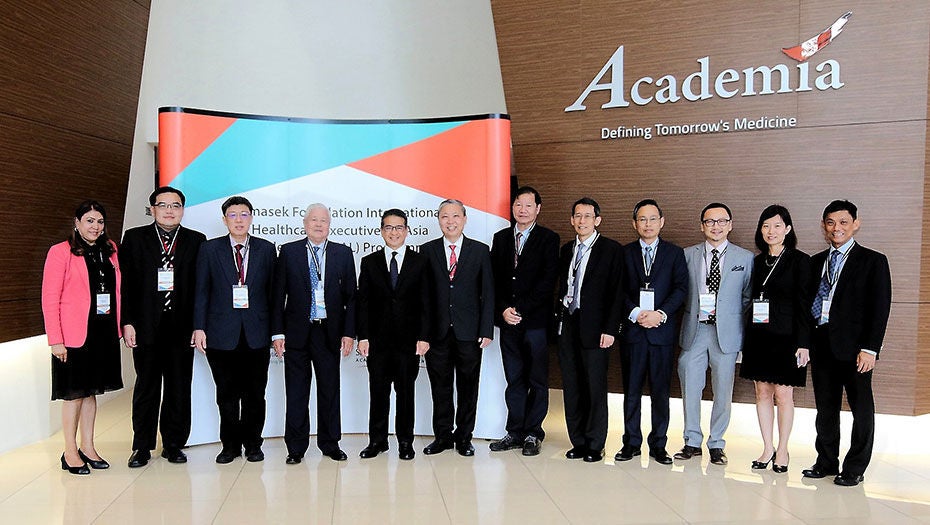
The Temasek Foundation International Healthcare Executives in Asia Leadership Programme (TF Intl HEAL), co-organised by SingHealth and National Healthcare Group, was officially opened by Mr Edwin Tong, Senior Minister of State for Health, on 3 December 2018.

In its fifth run this year, the TF Intl HEAL programme serves as a key platform for delegates across Asia to enhance understanding of healthcare leadership and management, as well as build learning networks to strengthen healthcare access and delivery.

Speaking at the opening ceremony, Senior Minister of State for Health, Mr Edwin Tong, highlighted non-communicable diseases, specifically diabetes, as one of the most pressing healthcare challenges in the region. He shared the three strategies of prevention, screening and management that the Singaporean Government is using to shift the population towards a healthier lifestyle, promote early detection and intervention and improve diabetes care.
Mr Tong also stressed the importance of strong healthcare leadership from both the public and private sectors, as well as collaboration and sharing of ideas to tackle health challenges both locally and in the region.
"At the end of the day, we want our people to not just live long, but also live well. To do that, we must all do our part to create supportive environments and encourage individuals to adopt a healthy lifestyle. We also need a good healthcare system that is both accessible and sustainable."

From L-R: Dr Bee Yong Mong, Dr Sita Rama, Dr Kyaw Kan Kaung and Mr Pascoe Kase 
At a panel discussion on the Challenges of Non-Communicable Diseases (NCDs), delegates from Papua New Guinea, Myanmar and India shared the current situations of NCDs in their countries, challenges and areas of concern, as well as how they have tackled the issue.
Mr Pascoe Kase, Secretary of Health, Ministry of Health, Papua New Guinea, shared his experience managing the recent polio outbreak in the country. He highlighted the importance of collaboration with international partners in dealing with the outbreak, and his government would look to neighbouring countries in the region, such as Singapore, on their experiences in building a resilient health system.
With more than 60% of mortalities in India attributed to NCDs, Dr Sita Rama, Consultant, Healthcare Projects, Tata Trusts, Mumbai, India, stressed the importance and urgency in controlling these diseases in India. He cited the successful Pan India GOI-Tata Trusts NCD Control Project, which aims to digitise information on NCDs, as well as health records for the wider population as one of the initiatives that the Indian government has undertaken to this end.
Dr Kyaw Kan Kaung, Director (NCD), Department of Public Health, Ministry of Health and Sports, Myanmar, also shared the various initiatives to tackle NCDs in the country, such as an NCD Strategy Plan for Myanmar and developing projects to reduce risk factors of NCDs in the population. They have also rolled out the WHO Package of Essential Non-Communicable Disease Interventions (WHOPEN), which is a set of interventions that can be delivered to an acceptable quality of care, even in low-resource settings.
Spanning a week from 3 December to 7 December, the TF Intl HEAL programme featured talks, dialogues and panel discussions on a wide range of key areas, including healthcare policies and governance, clinical quality and process improvement and hospital management. Delegates also visited healthcare facilities at SingHealth and NHG, including the SingHealth Duke-NUS Diabetes Centre at Singapore General Hospital (SGH) and the Ng Teng Fong Centre for Healthcare Innovation at the HealthCity Novena Campus.













 Get it on Google Play
Get it on Google Play